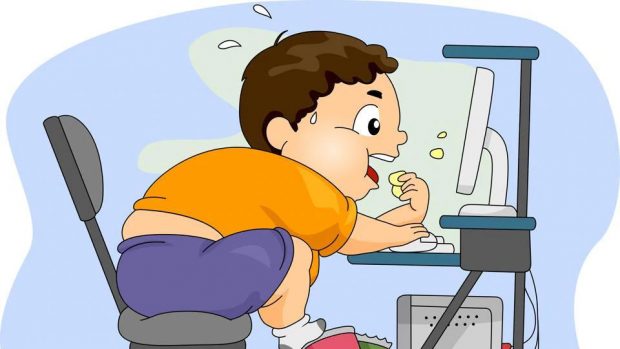
‘Singletons’ more likely to be obese than kids with siblings: Study
Team Udayavani, Nov 7, 2019, 3:42 PM IST

Washington: Only-children are more likely to be obese than kids with siblings, according to a study which found that families with multiple children tend to make more healthy eating decisions.
The study, published in the Journal of Nutrition Education and Behavior, found that only-children, who researchers refer to as “singletons,” had less healthy family eating practices, and beverage choices.
They also had lower total Healthy Eating Index (HIE) score, indicating there are both individual and collective differences in eating patterns between the groups.
HEI is a measure of diet quality, independent of quantity, that can be used to assess compliance with the dietary guidelines and monitor changes in dietary patterns.
“Nutrition professionals must consider the influence of family and siblings to provide appropriate and tailored nutrition education for families of young children,” said lead author Chelsea L Kracht, who worked on the research during her PhD at the University of Oklahoma Health Sciences Center in the US.
“Efforts to help all children and families establish healthy eating habits and practices must be encouraged,” Kracht said in a statement.
Data was self-reported in daily food logs kept by mothers over the course of three days — two weekdays and one weekend day.
Teachers kept logs for any food children ate while at school, the researchers said.
Mothers also completed a questionnaire to evaluate typical family eating behaviours like food and beverage choice, they said.
The researchers found mothers of singleton children were more likely to be obese themselves.
They noted that maternal Body Mass Index (BMI) had a much stronger connection to child BMI percentile and waist circumference percentile than singleton status.
BMI is a measure of body fat based on height and weight.
Maternal BMI did not significantly contribute to overall eating patterns but did contribute to empty calories, the researchers said.
The team also found that time spent in away-from-home care like school and daycare was not connected to children’s eating patterns.
This points to the difference coming from inside the household, including a difference in how frequently the family eats in front of the television and sugary drinks consumption, which differed between groups in the study.
“Healthier eating behaviours and patterns may result from household-level changes rather than peer exposure, as peer exposure is also present in away-from-home care,” Kracht said.
Udayavani is now on Telegram. Click here to join our channel and stay updated with the latest news.
Top News

Related Articles More

Plant-based meat alternatives linked to increased risk of depression in vegetarians, study finds

Lung transplant at right time only cure for idiopathic pulmonary fibrosis that killed Ustad Zakir Hussain

ICMR sets up India’s first diabetes biobank in Chennai

AI Meets Health: The Rise of Smart Fitness Solutions

New study links paracetamol to side effects in digestive tract, heart, kidneys among older adults
MUST WATCH
Latest Additions

Boy critically injured after tree branch falls on him in Bengaluru

Congress claims party worker ‘died due to tear gas smoke’ during protest in Assam

Four dead in road accident in Kolar

Rajasthan govt to replace Urdu terms in policing with Hindi words

BJP using legislature for ‘politics’ instead of discussing real issues: CM Siddaramaiah
Thanks for visiting Udayavani
You seem to have an Ad Blocker on.
To continue reading, please turn it off or whitelist Udayavani.




















